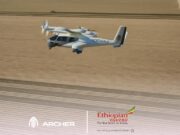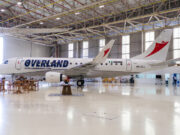Global aviation entities have been urged to invest significantly in the training and retraining of technical personnel to counter the potential disruptions from emerging technologies.
Warning against skill gaps and employee disengagement due to inadequate training, industry leaders emphasized the importance of adapting to technologies like Remotely Piloted Aircraft Systems (RPAS), Advanced Air Mobility Systems (AAM), 5G Networks, Artificial Intelligence (AI), and robotics.
At the International Federation of Air Traffic Controllers’ Associations (IFATCA) meeting in Abuja, the Managing Director, Nigerian Airspace Management Agency (NAMA) Engr. Tayib Odunowo, represented by the Director Operations, Mr. Mathew Pwajok, highlighted the industry’s ongoing evolution toward safety, efficiency, and economic air navigation.
Recognizing the inevitability of disruptive technologies, speakers underscored the need for collaboration among service providers, regulatory bodies, and training organizations to address operational training and equipment needs for air traffic controllers.
They recommended adopting the Competency Based Training Framework and preparing for the extensive application of automation, digitization, and AI in future air traffic management systems.
IFATCA’s Regional Vice President emphasized the timeliness of staying abreast of emerging technologies through continuous training, echoing the sentiment that shaping the future requires a proactive approach to industry sustainability.
The President of the Nigerian Air Traffic Controllers’ Association (NATCA), Mr. Yomi Agoro called on IFATCA to support member associations in overcoming technical, operational, and welfare challenges, underscoring their integral role in the federation’s success.
NATCA urged the meeting to seek more input from member associations to comprehensively assess the region’s current state and identify areas for improvement.



























